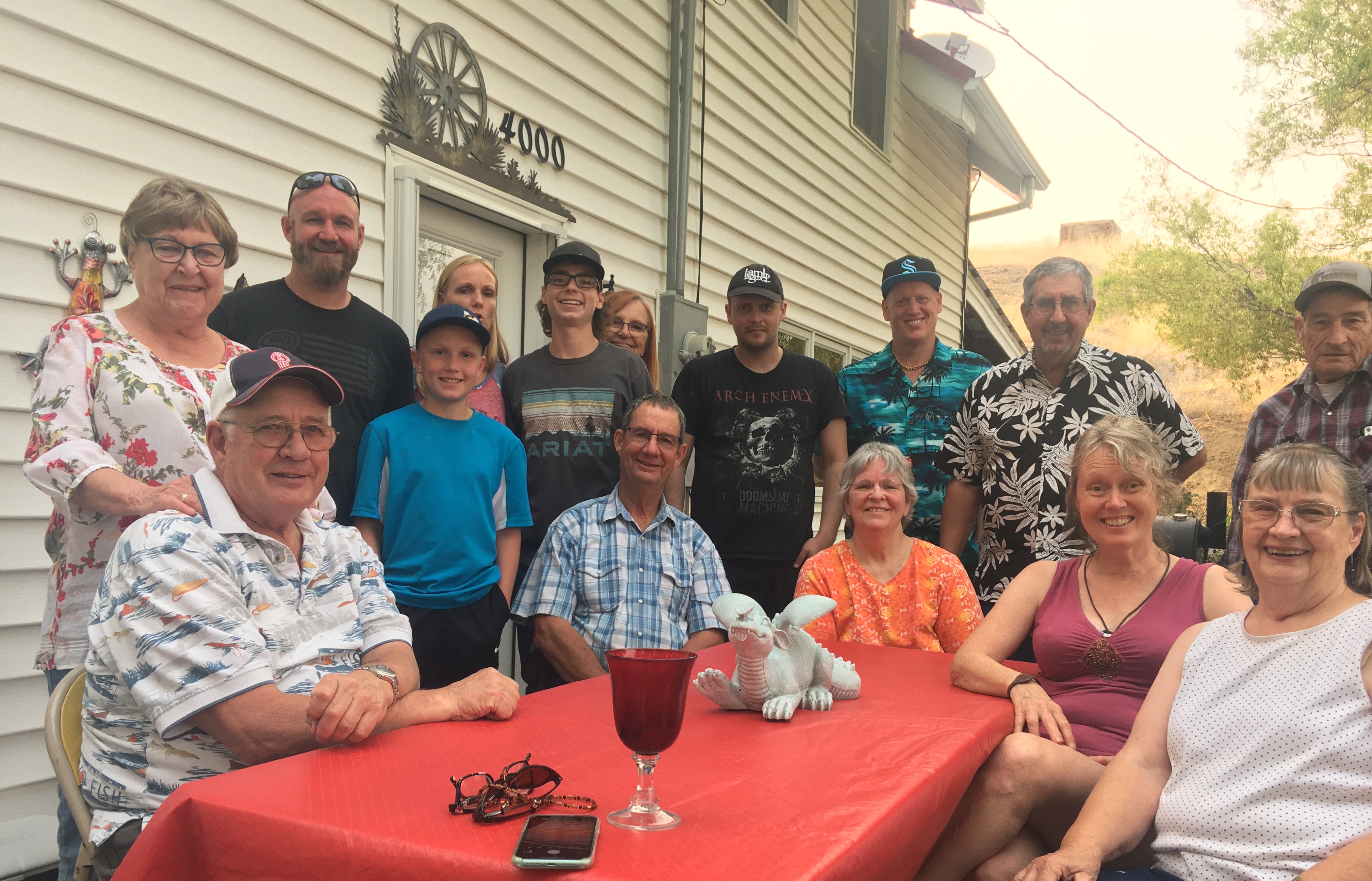2025 Grand Marshals:
Grand Marshalls, The Liskey Family and Farm.
Since 1886, the Liskey family has proudly woven itself into the tapestry of Klamath Basin agriculture.
The first Liskeys to settle locally were true pioneers. Along with other hopeful Polish and German families, they endured countless challenges, battling their way from Europe to settle in an untamed area of southern Oregon known as the Klamath Basin. Grandfather, John Liskey 1885-1971, was the fifth of eight children born to Prussian immigrants Johann and Caroline Liskey, who had traversed thousands of miles to claim a small homestead on Swan Lake east of Linkville in 1886.
The Liskey brothers leveraged their business and agricultural expertise to expand their farming and ranching operations. The Liskey footprint eventually extended from Fort Klamath to the newly drained northern California grasslands of Tulelake.
Our grandmother, Philomen Liskey (1885-1988), came to the Klamath Basin from San Benito, California. In 1916, she homesteaded in the Swan Lake area. It was there that she met and, in 1917, married John. In 1920, he built them a “home on wheels,” and they began herding livestock and farming on the newly-drained lands surrounding Tulelake.
John successfully ran cattle, horses, mules, sheep, and hogs on grazing and farmland they leased on Tulelake’s west side. Grandma Phil was the first person in the Basin to raise flocks of turkeys commercially.
In 1931, John and Phil purchased property on the recently drained Lower Klamath Lake. With their young children, Jack and Georgia took on the challenge of transforming the unstable land into a farm that would support them and future generations.
Almost immediately upon acquiring the ranch, John became active in the Klamath Drainage District, serving as administrator from 1935 to 1963, when his son, Jack Liskey, took over the duties. Jack, in turn, passed on the leadership to his sons, Rocky and Tracey, in the early 2000s.
Among the many challenges the Liskeys faced on Lower Klamath was the lack of cold water – the water issued from most of their wells was around 195 degrees. Using the resource was a challenge; they first tried frost protection, which led to “cooked crops.” They boiled cull potatoes for winter cattle feed until culls were no longer available. Then, they began using the water to warm greenhouses where reforestation trees, bedding plants, and vegetables, as well as many other greenhouse-based projects, could flourish.
Jack Liskey, 1920-2013, the second generation of Liskeys to oversee Liskey Farms, was very involved with water and livestock issues in the Basin. In 1929, his parents were founding members of the Southern Oregon (now Klamath) Cattlemen’s Association, and Jack was a devoted member of that vital group, being very active with the early Klamath Cattlemen’s bull sale. Jack, a graduate of Merrill High School, and his wife, Virgie Hooper Liskey, whom he met at Oregon State University, contributed both time and resources to many activities in the Merrill community. Vergie, a Tulelake graduate and the daughter of Basin homesteaders, gave Jack four children (below), all of whom were/are involved in local agriculture.
The John Liskey family tree: John and Phil had two children – Jack and Georgia. Jack married Virginia (Vergie) Hooper, and they had four children – Vickie, Rocky, Bernie, and Tracey.
After raising her own family, daughter Vickie Liskey graduated from North Dakota State University with a degree in horticulture. She founded a highly productive nursery that sells locally sustainable plants in Klamath Falls. Later, she provided for the care of her father until he passed away in 2013. Vickie is active in her church and is a certified state flower judge. She is a member of the Merrill Lions Club and has been involved with the Klamath Basin Potato Festival for most of her adult life.
Following a stint in Vietnam, son Rocky Liskey worked on the ranch with a passion for the cattle and hay. He served as president of the Klamath Cattlemen’s Bull Sale for many years, and he was a board member of the Klamath Drainage District for a lengthy period.
Bernie Liskey farmed his wife’s family homestead acreage in the Tulelake area, growing potatoes and onions. Later, he worked for Klamath County. He is now enjoying retirement in Medford.
The youngest son, Tracey Liskey, had primary duties on the ranch, including overseeing the crops and serving as the ranch’s mechanic. Tracey is particularly involved with the Klamath County Farm Bureau and the Oregon Farm Bureau. He has taken on his grandfather’s and father’s passion for the water issues of the Basin, as well as those of the state of Oregon. Most recently, Tracey has been working with the Klamath Water Users Association.
Vickie has four children – Deborah Ann, Peggy, Randy, and Michael (deceased). Vickie has six grandchildren and four great-grandchildren.
Rocky had three children – Jessica, Josh, and Amanda (all deceased). He is the stepfather to his wife Karen’s sons, Cory and Travis Bowers.
Bernie married Pam Rose, and they have two children – Stacey and Sandy.
Tracey married Sue Frisky. They have two children, Lydia and Patrick, three grandchildren, and two great-grandchildren.
Georgia Liskey, 1926-2003, married the son of one of Tulelake’s first homesteaders, Keith Gentry—John Gentry, who resides in Tulelake and is employed by Walker Brothers. Karen Gentry Cochran lives in Maryland. She and her husband Bill have two children, Shayne and Robyn, and three grandchildren.
Footnote: Georgia Liskey was the Potato Festival Queen in 1941 and reigned until 1945 when World War II ended. Jack’s daughter, Vickie, was a junior Potato Festival princess in 1950; Georgia’s daughter, Karen, in 1951.
